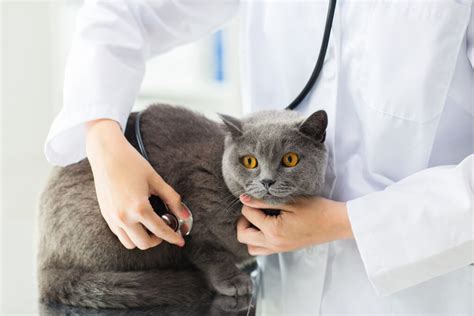Digestive issues are a common health concern among cats, affecting up to 25% of the feline population worldwide. Ensuring your furry friend’s digestive health is crucial for maintaining their overall well-being. This comprehensive guide will delve into the causes, symptoms, and effective management strategies for digestive issues in cats.

Causes of Digestive Issues in Cats
Various factors can contribute to digestive problems in cats. Some of the most common causes include:
- Dietary sensitivities: Certain foods, such as dairy products or grains, can cause gastrointestinal distress in some cats.
- Infections: Viral or bacterial infections can disrupt the normal balance of gut bacteria, leading to digestive problems.
- Parasites: Intestinal parasites, such as worms, can interfere with digestion and nutrient absorption.
- Stress: Stressful events, such as moving or changes in routine, can trigger digestive upset in some cats.
Symptoms of Digestive Issues in Cats
Recognizing the signs of digestive issues in cats is essential for prompt treatment. Some of the common symptoms to watch out for include:
- Vomiting: Frequent or persistent vomiting can indicate a digestive problem.
- Diarrhea: Loose or watery stools, especially if they persist for more than 24 hours, can be a sign of diarrhea.
- Constipation: Difficulty passing stools or less frequent bowel movements can indicate constipation.
- Flatulence: Excessive gas production and flatulence can be a symptom of digestive issues.
- Abdominal pain: Cats with digestive problems may exhibit signs of discomfort in the abdominal area, such as hunching their backs or straining to defecate.
Conventional VS Holistic Treatment Options
When addressing digestive issues in cats, several conventional and holistic treatment options are available.
Conventional Treatment Options:
- Veterinary care: Diagnosing and treating digestive issues in cats typically involves consulting with a veterinarian. They may perform tests, such as bloodwork or X-rays, to determine the underlying cause.
- Medication: Anti-nausea medications, probiotics, and anti-diarrheal drugs may be prescribed to manage symptoms and restore digestive balance.
- Dietary changes: Modifying your cat’s diet, such as eliminating certain foods or switching to a prescription diet, can help alleviate digestive problems.
Holistic Treatment Options:
- Natural remedies: Some natural remedies, such as ginger or chamomile, have soothing effects on the digestive system and may alleviate discomfort.
- Acupuncture: This ancient Chinese practice aims to stimulate specific pressure points to improve digestive function and balance the energy flow in the body.
- Herbal supplements: Certain herbs, such as slippery elm or marshmallow root, have traditionally been used to support digestive health in animals.
Importance of Cat Digestive Health
Maintaining optimal digestive health is essential for several reasons:
- Nutrient absorption: A healthy digestive system ensures that your cat can absorb essential nutrients from their food, supporting overall health and well-being.
- Immune function: The gut microbiome, the community of bacteria in the digestive tract, plays a crucial role in immune function by protecting against harmful pathogens.
- Quality of life: Digestive problems can significantly affect your cat’s quality of life, causing discomfort, lethargy, and a decreased appetite.
Benefits of Managing Digestive Issues in Cats
Effectively managing digestive issues in cats offers numerous benefits:
- Improved well-being: Treating digestive problems can restore your cat’s comfort, energy levels, and appetite, leading to an improved overall well-being.
- Reduced risk of complications: Untreated digestive problems can lead to more severe complications, such as dehydration, malnutrition, and even organ damage.
- Cost savings: Preventing and treating digestive issues early on can help avoid costly veterinary expenses associated with more advanced complications.
FAQs on Cat Digestive Health
1. What are some common signs of digestive issues in cats?
– Common signs include vomiting, diarrhea, constipation, flatulence, and abdominal pain.
2. How can I help my cat prevent digestive problems?
– Feed a healthy and balanced diet, avoid sudden dietary changes, and ensure access to clean water.
3. What is the best way to treat digestive issues in cats?
– The best treatment depends on the underlying cause. Consult with a veterinarian for proper diagnosis and treatment recommendations.
4. Are there any natural remedies for cat digestive problems?
– Some natural remedies, such as ginger or slippery elm, may provide relief, but consult with a veterinarian before administering any supplements.
Reviews on Cat Digestive Health
1. Lucy, Cat Owner: “After trying everything for my cat’s digestive issues, I found a vet who recommended a prescription diet. It worked wonders!”
2. Max, Cat Enthusiast: “Acupuncture has been a lifesaver for my cat with chronic digestive problems. It’s worth considering if conventional treatments aren’t working.”
3. Emily, Veterinary Nurse: “Prevention is key when it comes to cat digestive health. Regular checkups, a balanced diet, and avoiding stress can help cats stay healthy.”
Conclusion
Ensuring your cat’s digestive health is crucial for their overall well-being. By recognizing the causes, symptoms, and effective management strategies for digestive issues, you can help your furry friend live a comfortable and healthy life. Whether you opt for conventional or holistic treatment options, consulting with a veterinarian is essential for accurate diagnosis and personalized care.





















